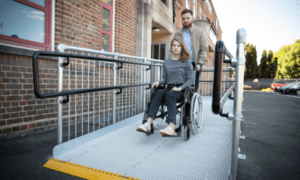As the nation grapples with issues of police brutality, a discussion about how to create safe and trusting communities must include a focus on education. Police officers apply force when they are responsible for remaining calm and orderly. However, excessive force can lead to mistrust and insecurity from those affected — and the rest of society. This is why creating an environment where police brutality is openly discussed among law enforcement personnel is essential. Heath Rexroat explores how educating law enforcement agents on their actions’ impact locally and nationally contributes to building trust and promotes safety within our streets.
What is Police Brutality and Why It’s Important to Educate Officers
Police brutality is a topic that has been at the forefront of national conversation recently. It is defined as law enforcement officers using excessive or unnecessary force in the line of duty. Unfortunately, instances of police brutality have become all too common in the United States. This is why officers must be educated on the topic and the possible consequences of their actions. Officers can better serve and protect their communities by understanding the gravity of their actions. We owe it to ourselves and our loved ones to demand accountability from law enforcement and educate officers on the importance of treating all individuals fairly and respectfully.
Types of Police Education on Brutality
There are several ways law enforcement agents can be educated on police brutality. Some departments have implemented mandatory training programs focusing specifically on the topic, while others incorporate it into their training curriculum. Additionally, community outreach programs and town hall meetings allow for open discussions between officers and community members to address concerns and educate both parties on the importance of trust and safety. Heath Rexroat believes that incorporating these types of education in law enforcement training can have a significant impact on reducing instances of police brutality and building trust within communities.
Examples and Impact of Law Enforcement Misconduct on Racial and Ethnic Communities
Cases of police brutality have been a prominent issue in the United States for decades. Some of the most well-known cases include Rodney King, Eric Garner, Tamir Rice, and George Floyd. These individuals became victims of excessive force, leading to their deaths at the hands of law enforcement officers. Such incidents can cause deep-rooted mistrust and fear within communities, especially among marginalized groups frequently targeted by police. Addressing these issues through education is crucial to prevent future incidents and foster trust between law enforcement and the public.
Heath Rexroat explains the devastating impact of police brutality on communities of color. It causes harm to individuals and creates a sense of fear and distrust within the community. The emotional and psychological distress those directly affected feel reverberates in their local communities, harming the mental health and emotional stability of others nearby. In addition, systemic racism and bias within law enforcement perpetuate a cycle of injustice and discrimination. Communities must come together to demand accountability and reform to create a just society for all.
Strategies for Teaching Law Enforcement Agents About Police Brutality
When it comes to addressing police brutality, the education of law enforcement agents is essential. Several strategies can be implemented to teach them about this critical issue. One approach is to include police brutality in their curriculum and training programs. This can help them realize the impact of their actions and learn how to de-escalate situations effectively. Another strategy is to invite speakers from diverse perspectives to share their experiences with police brutality. These guest speakers can offer insights that may not be part of the standard curriculum.
Moreover, law enforcement agencies can use community outreach programs to foster trust and collaboration with the public. This can help officers work with community members more respectfully and effectively, which can ultimately reduce incidents of police brutality. By encouraging open and honest discussions about police brutality, we can work towards a future where all citizens feel safe and protected.
How Educating Officers on Police Brutality Can Increase Trust in Law Enforcement
Police brutality has become a popular issue threatening law enforcement and community trust. To combat this issue, an industry expert emphasizes educating officers on police brutality. By providing officers with comprehensive training on the issue, they can better understand how the public perceives their actions. This increased understanding can foster a greater sense of accountability and responsibility among officers, thereby increasing the public’s trust in law enforcement. When officers are seen as trustworthy and reliable, they can work more effectively with the community to prevent crime and help achieve a safe community.
How Communities Can Get Involved in Police Brutality Education
When it comes to ending police brutality, education is key. That’s why Heath Rexroat recommends educating communities and others about the issue. Through workshops, seminars, and community forums, individuals can learn more about the root causes of police brutality and ways to prevent it. This kind of education can empower people to take action, whether advocating for policy changes or working directly with law enforcement to improve practices. By coming together and learning about police brutality, we can create a just society.
How Building Trust Leads To Safety For All Involved Parties
Building trust between law enforcement and the community is essential for promoting safety for all parties involved. When individuals feel they can rely on officers to protect and serve them without fear of mistreatment, they are more likely to cooperate with law enforcement. This cooperation can improve public safety by allowing officers to better identify and address criminal activity in their communities. Additionally, when officers understand the importance of trust and work towards building it, they can also create a safer environment for themselves. By addressing police brutality through education and community engagement, we can promote safety and foster positive relationships between law enforcement and the public. So, let’s join hands to educate people about this issue and work together towards creating a fair and just society for all.
The goal is to build a society where individuals from all racial and ethnic backgrounds feel safe and equally valued. As Heath Rexroat emphasizes, this can only be achieved through open communication, education, and concerted efforts from law enforcement agencies and communities. It is our collective responsibility to address issues of police brutality and work towards building trust between law enforcement and underrepresented groups. Let’s take action now to create a safer and more just future for all. Let’s continue the conversation, educate ourselves and others, and work towards creating a society where everyone feels safe and protected.
Final Thoughts
By educating law enforcement officers on the reality of police brutality, we can increase trust in law enforcement and build relationships between officers and communities of color. To do this, cultural changes from both sides must involve a commitment to teaching officers about bias and prejudice in the justice system. But it doesn’t have to end with just the professionals. Citizens in affected communities can benefit from community programs such as police accountability forums that allow them to share their experiences with law enforcement agents and make recommendations for improving the situation. Individual citizens can also become advocates for violence prevention education, working with authorities to ensure all police are aware of the potential consequences of their actions while on duty. Ultimately, by combining forces, we can help create a future where police brutality is no longer pervasive and unjustified use of force does not threaten people’s safety and well-being.




































